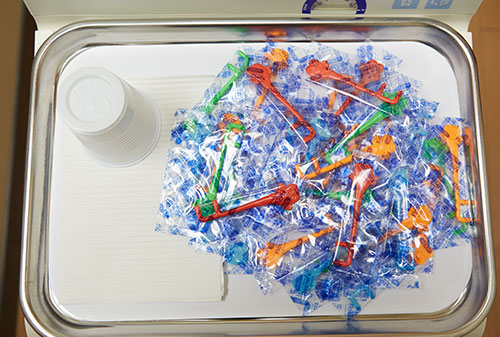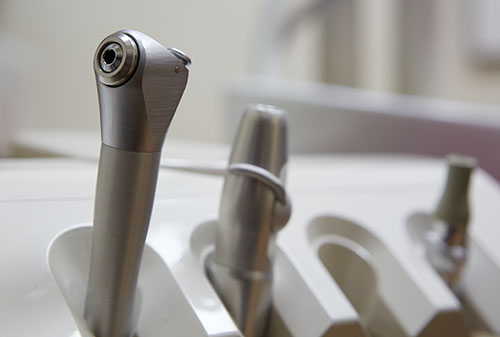Many people think that you cannot get cavities under a filling, crown or bridge. The tooth has already been “fixed”, so no more worries, right? Absolutely not true! Teeth are under those crowns and bridges, and as long as teeth are in the oral environment – it can decay. Taking care of expensive dental work will prevent early failures due to cavities and/or gum disease.

Crown and Bridge Care Advice:
Crowns should be brushed and flossed more meticulously than regular teeth because they collect plaque and tartar greater and faster than regular teeth.
For bridges, it is especially important to brush and floss the teeth that “support” the bridge. Floss threaders help slip the floss under the bridge to clean the underside of the bridge and the sides of the teeth. Interproximal brushes are small brushes that can be used under the bridge and between the roots of the supporting teeth.
See your dentist immediately if you feel one or more sides of the bridge or the crown “loosening”. A loose crown or bridge can lead to extensive decay of one or more of the supporting teeth and ultimately the loss of the teeth.
Implant Care:
Implants are imbedded into the jaw bone to act as roots of teeth. Implants can be a single unit or multiple units as when supporting fixed bridges or removable dentures.
If surrounded by natural teeth, a single implant would be brushed and flossed along with the natural teeth. When two or more implants are fixed to a bridge – use the floss threads and interproximal brushes with warm water to clean all around the heads of the implant and under the bridge.
For implants supporting a removable denture – again use the smaller interproximal brushes gently all around the exposed parts of the implant. NEVER use any metal brushes or metal picks on the implant since this will damage the smooth outer surface of the implant making it more susceptible to plaque and tartar build-up.
Partial Denture Care Advice:

Remove the dentures at least twice a day to thoroughly brush and floss remaining teeth. Rinse the denture under warm water and gently scrub using a denture brush or a soft brush with soap and water. Plaque and tartar can build up on false teeth, just like they do on natural teeth. Soak them overnight in water, or in a special cleanser, but avoid using vinegar as they will damage the metal components of the partial denture.
Full Denture Care Advice:
It is especially important in the full denture mouth to remove them while you sleep since the amount of the height and depth of gummy/bony ridges determines how well the denture is going to fit. These ridges need the time overnight to rejuvenate. Without this time, ridges lose their height faster and dentures become loose and sore faster.
Dentures should be cleaned EVERY DAY using a denture brush or a soft brush with soap, and warm water. Do not scrub, as this causes scratches and allows bacteria to harbour in the scratches. A denture cleanser can be used to soak them overnight, as well as a mixture of half water and half vinegar. DO NOT use bleach as this will whiten the pink acrylic parts of the denture.
